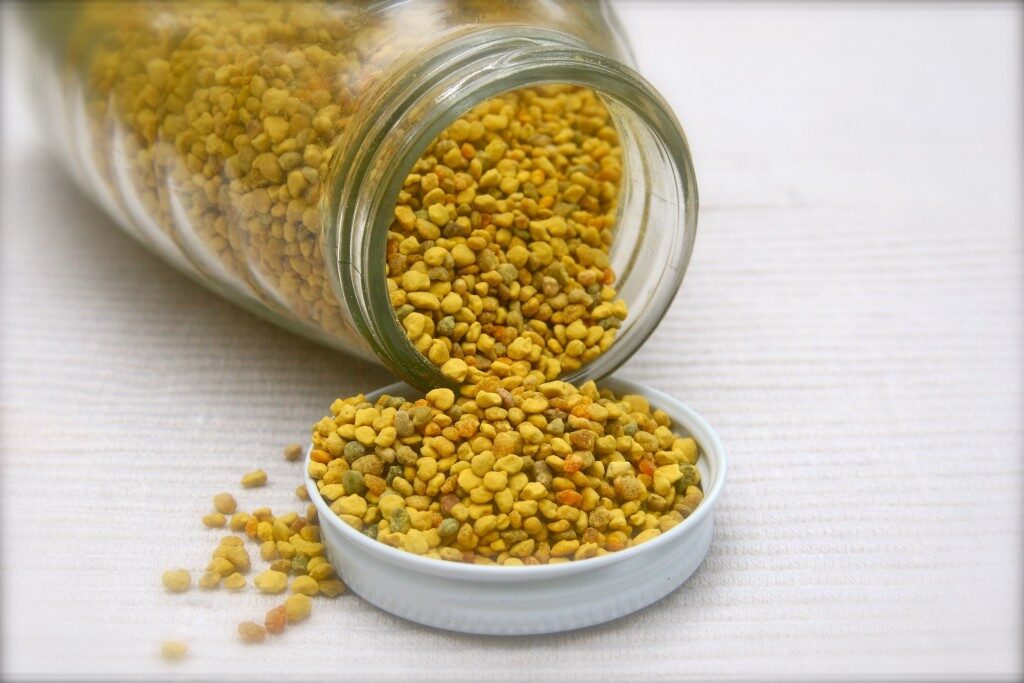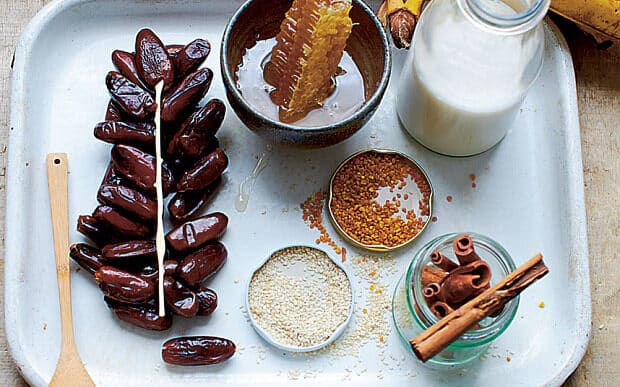
20 Mar Got Allergies? Bee Pollen Might Be Your Solution.
Everything from raw honey to honeycombs have been widely accepted as containing incredible health benefits, but it looks like the bee’s influence doesn’t just stop there.
Enter the latest craze: bee pollen.
When honeybees collect pollen, flying from flower to flower, some adhere to their hind legs as well as their secrete a thoraxes. These efficient workers then pack the pollen into granules, and carry them two at a time back to the hives to feed to their young.
To collect these granules, beekeepers have developed a method whereby they attach a small box with a screen in the doorway of the hive. This gently pulls the granules from their legs, and are then sold as bee pollen.
One obvious concern is that bees are then deprived of food, but beekeepers are also wary of this, sure to not take too much from their bees.
Now, it’s marketed as one of the best superfoods, jam-packed with vitamins A, B, C, D, E, and K, as well as folic acid, calcium, potassium, iron, zinc, magnesium, selenium, antioxidants, amino acids, and protein.
Bee pollen also boasts allergy-fighting properties. That’s great news to those who suffer the hell that is seasonal allergies.
But of course, one must know where one stands when it comes to bees. If you’re allergic to bees, then taking bee pollen as an allergy combatant is out of the question.
According to some studies, small amounts of bee pollen (for those who aren’t allergic to bees) will actively inhibit the release of histamine, which is the compound that kicks off the body’s allergic responses (like runny noses to flood out pollen).
Through taking small amounts of bee pollen, it’s suggested that your body will be desensitized to allergies over time.
Be warned, though: one shouldn’t be having too much bee pollen. While many believe that bee pollen does boast all of the above health benefits, it’s still pegged as one of those divisive foods in science. As with all other superfoods, proceed with caution.
Make sure you’re not allergic, and take small doses to try it out first to ensure it doesn’t react poorly with your body.

To incorporate sweet, floral bee pollen into his or her diet, try it in smoothies, on oatmeal, or over salads. Try this bee pollen, banana, and date smoothie!

Bee pollen, banana, and date smoothie
From The Telegraph
Ingredients
230ml almond milk
1 banana, peeled
½ tsp bee pollen
1 tsp raw honey
2 dates, stones removed
2 tsp sesame seeds
A pinch of ground cinnamon
Method
Blend all your ingredients together.
At our new store Living Produce Aisle, located at 1168 Hamilton Street in Vancouver, British Columbia, you can add bee pollen to any of our delicious and nutritious smoothies. We also offer cacao nibs, shredded coconut, flax seeds, hemp seeds, and chia seeds to fulfill all of our health needs!
How do you take your bee pollen? Let us know in the comments section!

